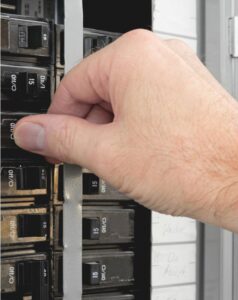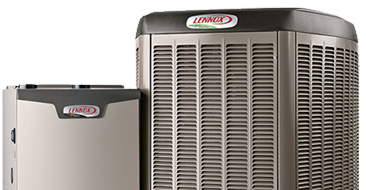Written by Aaron Robarge | January 5, 2024

However, many homeowners complain that using their microwave makes the breaker trip. Even the occasional tripped breaker can cause significant inconvenience, and it’s essential to identify the cause to stop it from recurring.
At All Comfort Services, we’ve resolved many tripped breakers in Madison, McFarland, Fitchburg, Cottage Grove, and Windsor. It’s our pleasure to help you identify the cause and apply the appropriate solution.
There are several common causes of tripped breakers, including:
Here are a few steps you can take to troubleshoot the issue of your circuit breaker tripping:
Most microwaves draw around 12 amps, and circuits are typically rated for 20 amps. Overloading can happen if multiple appliances, such as coffee machines, blenders, mixers, and toasters, are plugged into the same circuit.
To identify if overload is the issue, unplug these additional appliances and see if the circuit still trips. If it doesn’t trip, it was likely overloaded due to the simultaneous use of multiple devices.
Determine if your microwave is connected to a dedicated circuit. This is often labeled as “microwave” in newer homes on the breaker box. A dedicated circuit prevents overload from other appliances.
If your microwave doesn’t have a dedicated circuit, consider consulting a certified electrician to install one.
If the issue persists after unplugging extra appliances and checking for a dedicated circuit, inspect the GFCI breaker and circuit breaker. A malfunctioning GFCI or circuit breaker could be the culprit.
Contact a certified electrician to inspect and test these components to ensure proper functionality.
If all circuits are functioning correctly and there are no issues with additional appliances, it’s possible that the microwave itself is faulty. Faults may arise from a bad magnetron, damaged internal circuitry, or blown fuses.
Never attempt to repair these issues on your own due to the risk of fire hazards and electrocution. In most cases, repairing these internal components costs more than purchasing a new microwave.
Call (608) 838-7300, and we’ll send a certified electrician to your home in McFarland, Madison, Fitchburg, Cottage Grove, Monona, or nearby.
Aaron is a master electrician for residential and commercial customers. He’s been performing electrical services at All Comfort Services since 2010. “I like it when everything all comes together when the lights turn on, and I see the satisfaction in the customer’s face,” says Aaron.
